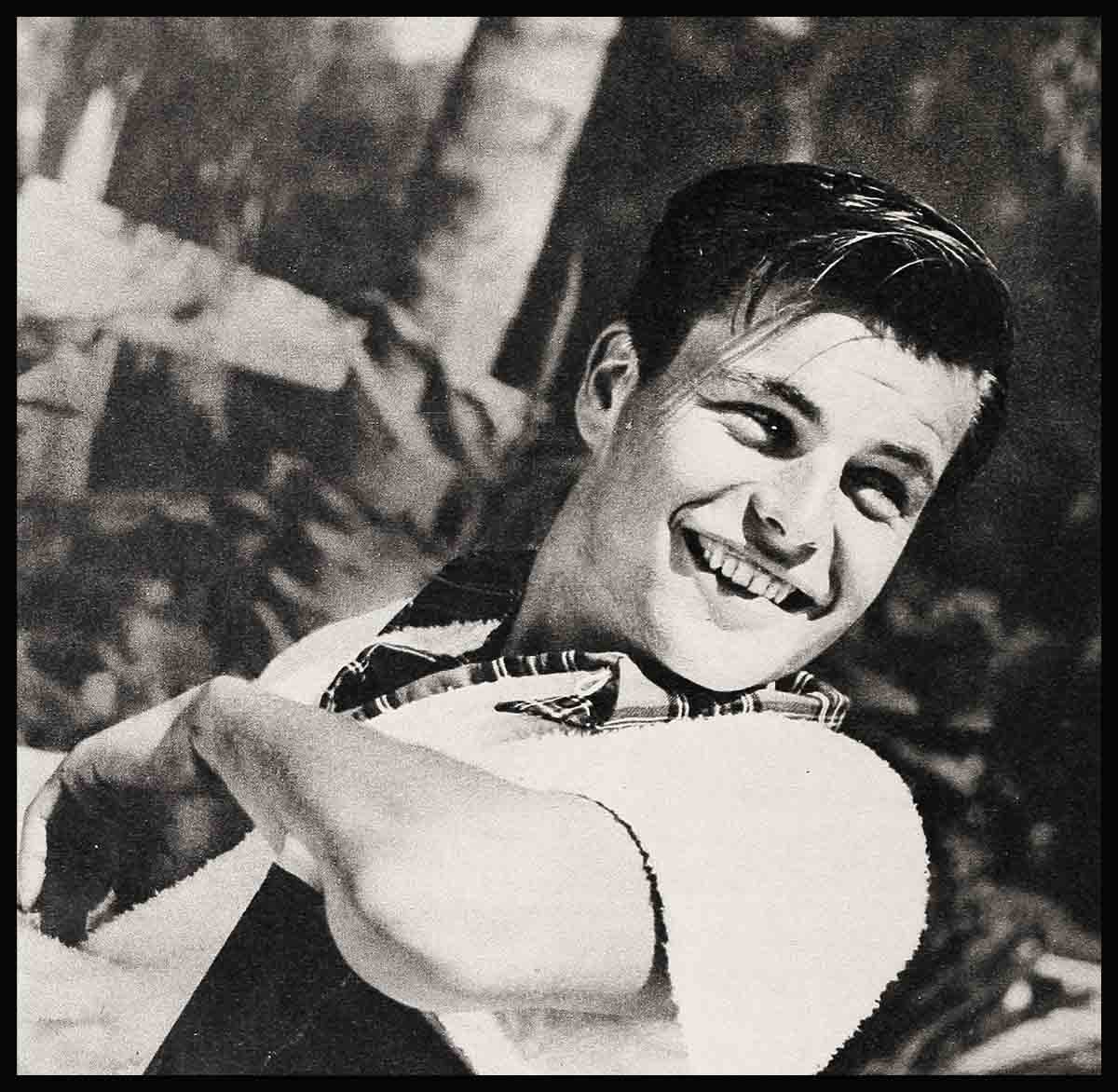
The Women In Robert Wagner’s Life
“Gentlemen prefer blondes or brunettes or redheads when they’re interesting to be with.”
A dashing young man in his suit of shining armor, Robert Wagner looked every bit the swashbuckling figure straight out of a medieval romance. But he was very 20th Century indeed when discussing modern women. For this was lunch hour, and Bob left the Middle Ages behind on the set of “Prince Valiant” as we repaired to the 20th Century-Fox commissary for physical nourishment and mental stimulation.
Bob had laughed at my opening question, “Do gentlemen prefer blondes?” and after giving me his first answer, repeated, “Do gentlemen prefer blondes? Of course they do—when the blondes look like Marilyn Monroe. Who wouldn’t!”
“You’re just like all men,” I answered. “They all prefer blondes when they look like Marilyn. But who does, except Marilyn. I want specific cases—but specific!”
He laughed again. “Well, then, if you’re going to be serious about this! I think blondes are beautiful! Now look at Janet over there. Isn’t she one of the most beautiful blondes you ever saw?”
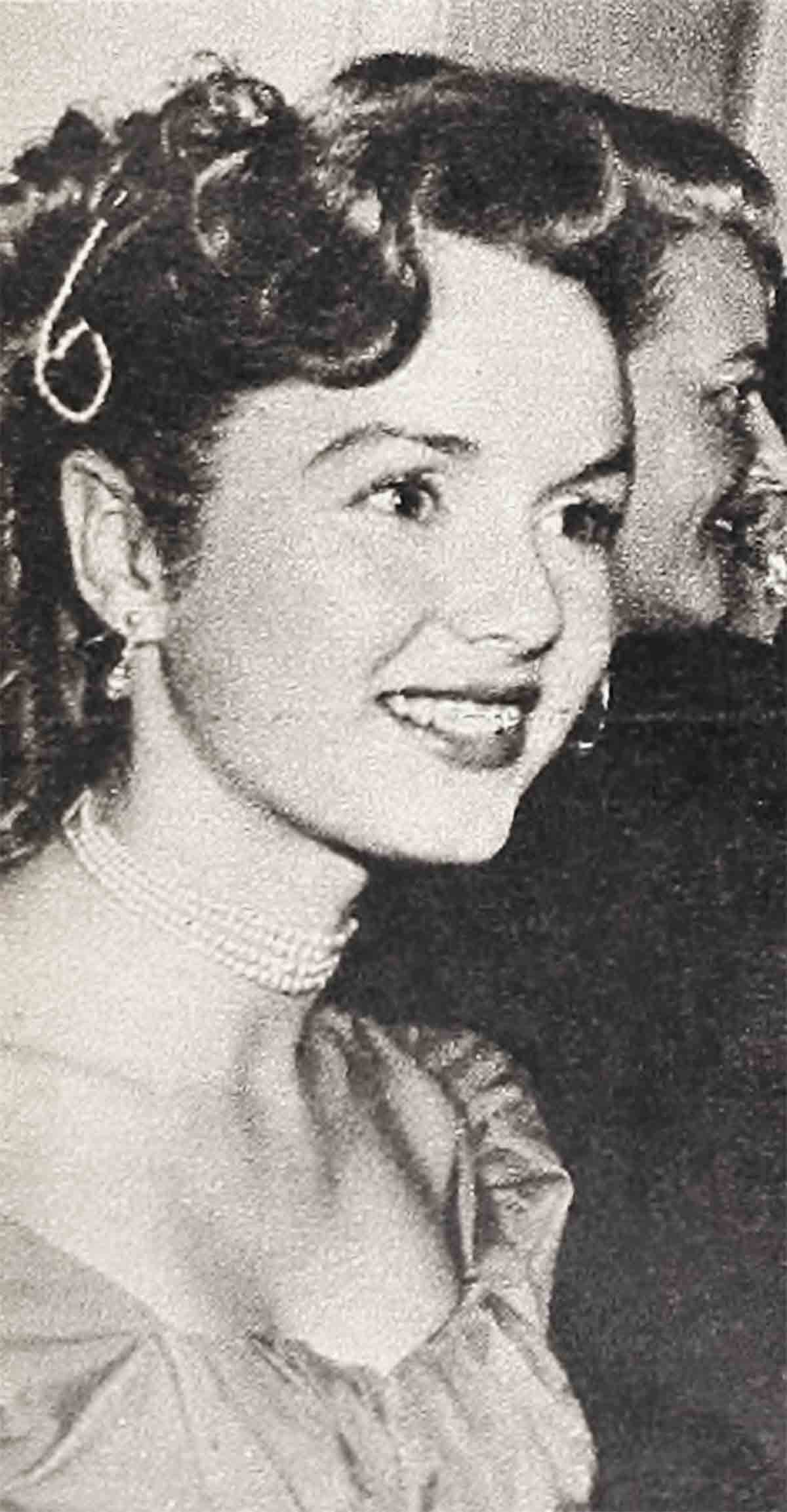
Of course Janet Leigh, Bob’s co-star who was seated across the room, looked like a dream in the gorgeous pale blue brocade gown which swept the floor, wearing on her shoulder-length golden hair an exquisite head piece of pearls fashioned like a crown—one of those costumes which embody all the splendor of the Middle Ages. No one could have made a more decorative Princess than did Janet. But then again, it’s great if you’re a blonde who looks like Janet! The question was still unanswered, and when I went on to protest, Bob became more serious, returning to his original idea that coloring matters little if a girl is a good companion.
“Every guy has a different idea as to what he considers beauty in a girl. I have my ideas, too. Of course the first thing that intrigues any guy about a girl is a pretty face and figure! But if she turns out not to be an interesting personality when you get to know her, then you soon forget about how pretty she is!”
“But what do you call ‘interesting?’ A girl who keeps quiet and lets you gentlemen talk? Or a girl who talks and tries to impress you with how much she knows?”
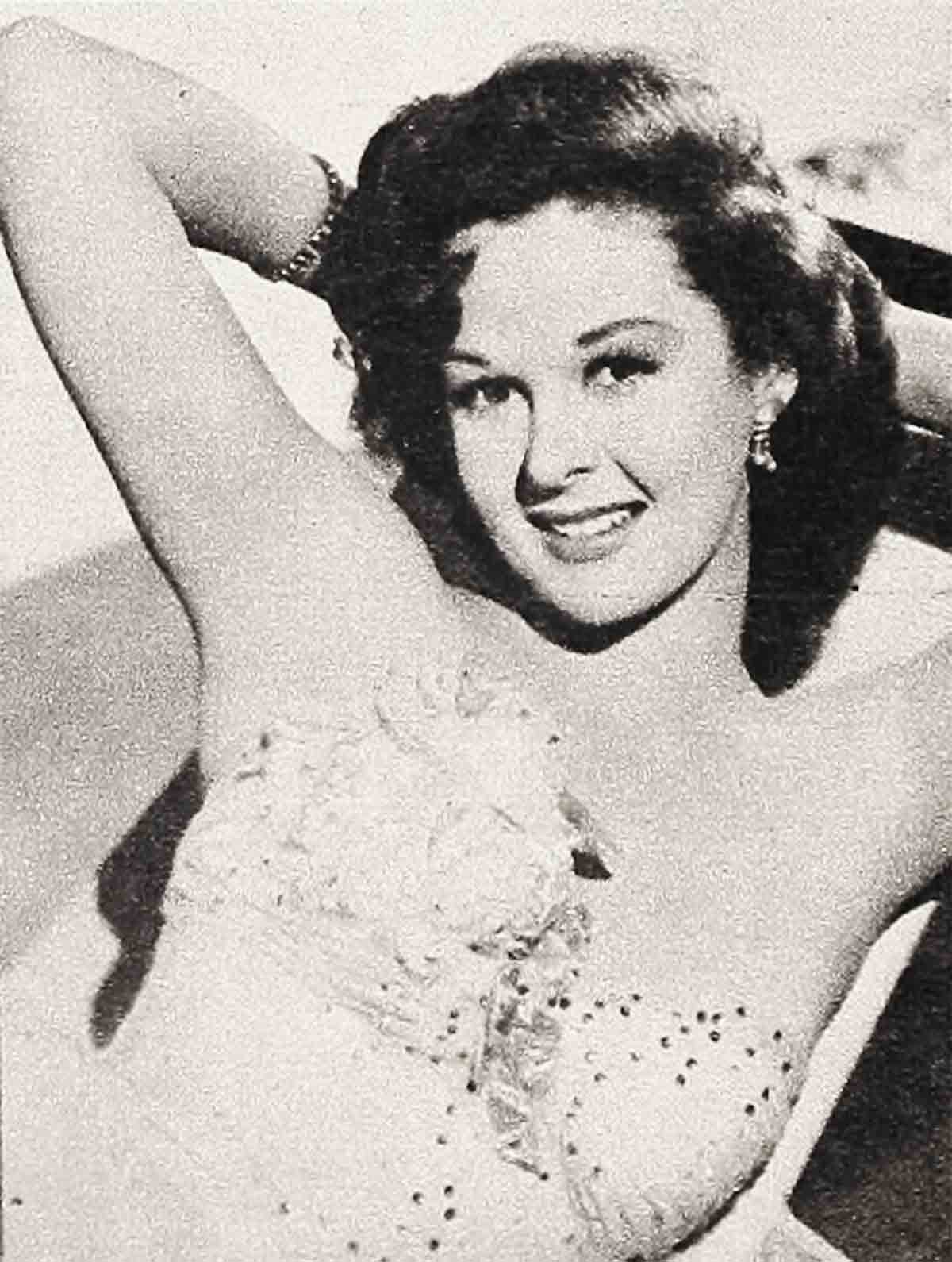
“I admire a girl who talks . . . if she has something to say! That’s great with me! But the girl who talks about the new hat she’s bought when playing a game of tennis doesn’t win friends. If she wants to talk about hats, there’s a time for that with her girl friends. Girls should be serious about entering into a game of sports. Nothing can be more frustrating than to be with a girl who talks about everything except the game she’s playing. No man likes that! And men don’t admire girls who make mean cracks about other girls and then ‘darling’ them all over when they happen to meet them. Girls who talk about themselves incessantly are apt to get pretty boring. Sure, I like girls who talk a lot . . . if they’ve got something interesting to talk about. I admire both men and women who are straightforward, unpretentious and honest. I hate phoniness of any kind. I can’t cope with subterfuge at all . . .”
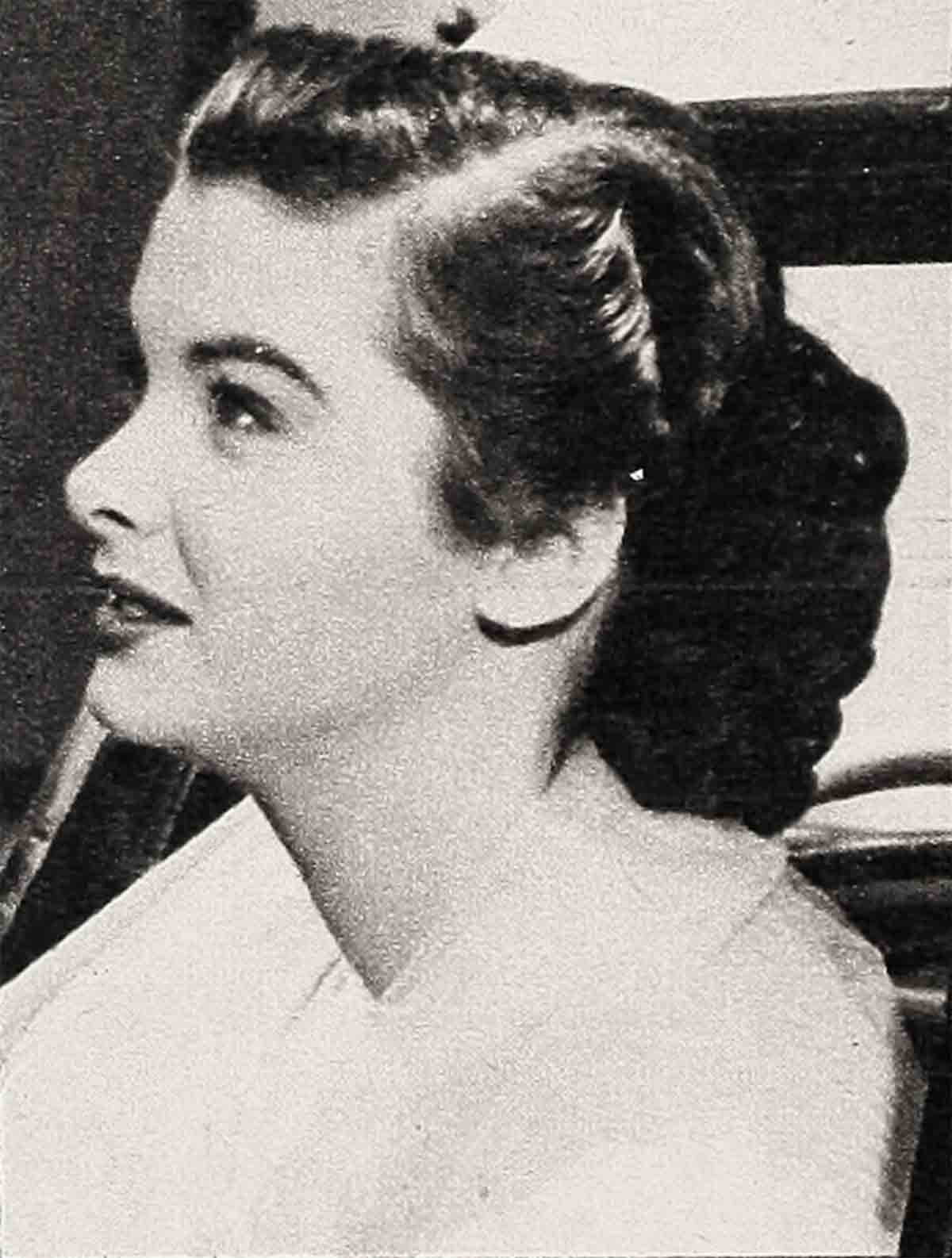
“Subterfuge is an art in which women excel,” I said. “Look at Eve, and all the trouble she started with Adam!”
“She must have been a woman without a sense of humor,” Bob said kiddingly. “And to me a sense of humor is a very important part of a girl’s charm!”
“Like the humor Debbie Reynolds has?” I asked. “That kind of humor—a young, effervescent humor?”
“Yes,” he answered seriously. “Debbie has a wonderfully gay sense of humor. She is great fun to be with. Never a dull moment. Her wit keeps a guy on his toes.”
“What do you consider the next important requisite—next to humor, I mean?”
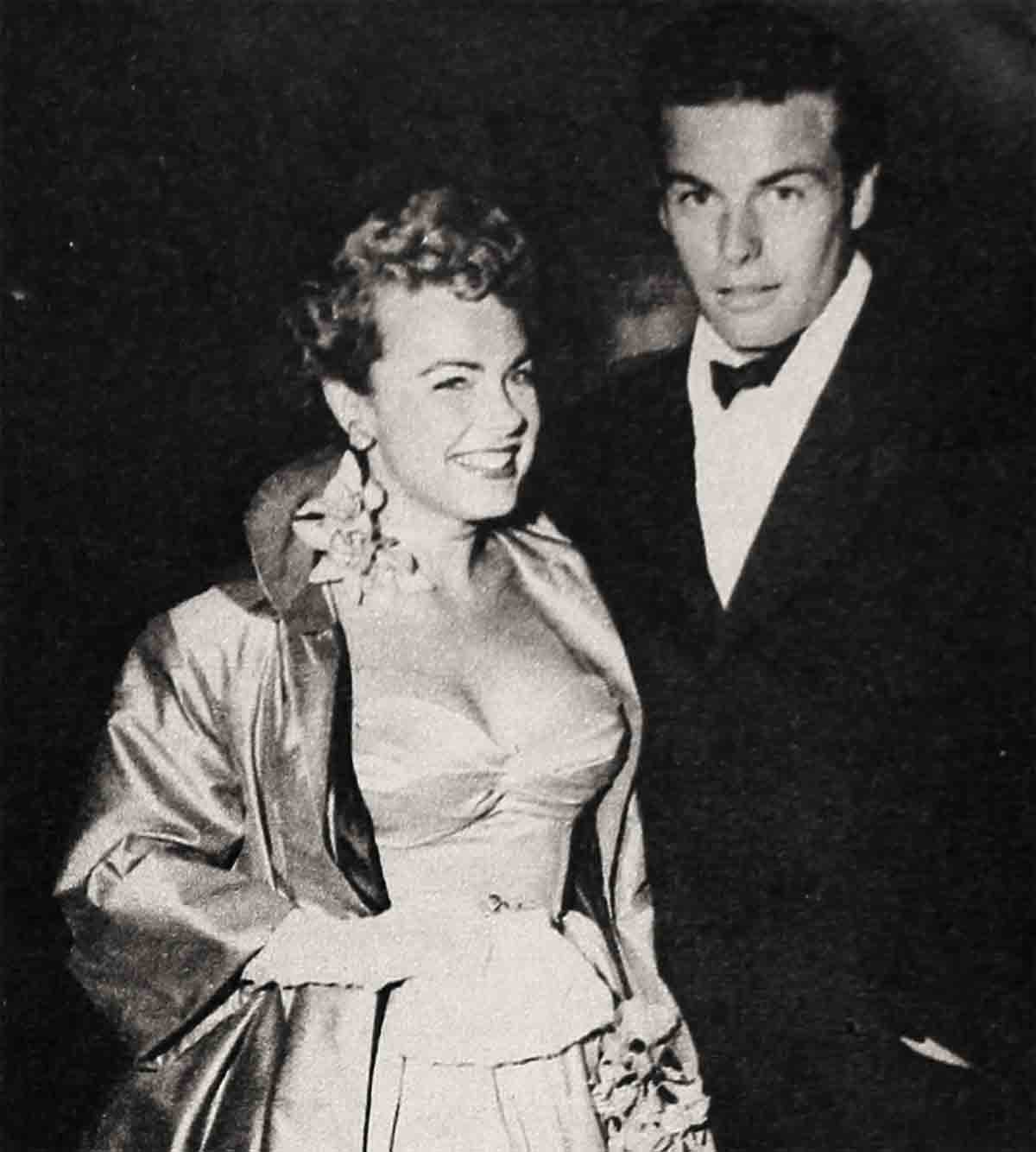
“Well,” he answered after a pause. “I like a girl to be serious, too. Everyone hasn’t the talent for flinging off bright wise cracks, one right after another like Debbie can, and be hilariously amusing. When Terry Moore and I were in Florida making ‘Beneath The 12-Mile Reef’ I found Terry to be a very serious girl, interested in reading everything from politics to novels and discussing them all with an intense interest. I don’t think anyone knows how well read Terry is! Only recently she enrolled in one of the night classes at U.C.L.A., taking a course, I believe, in History of the Theatre. You get to know people pretty well when you’re on a location with a motion picture company. And location trips can be rugged and difficult. As it happened this particular trip was a pretty tough one, and I thought Terry was a wonderful sport. So did everybody. She was so cheerful, happy and with no temperamental display.”
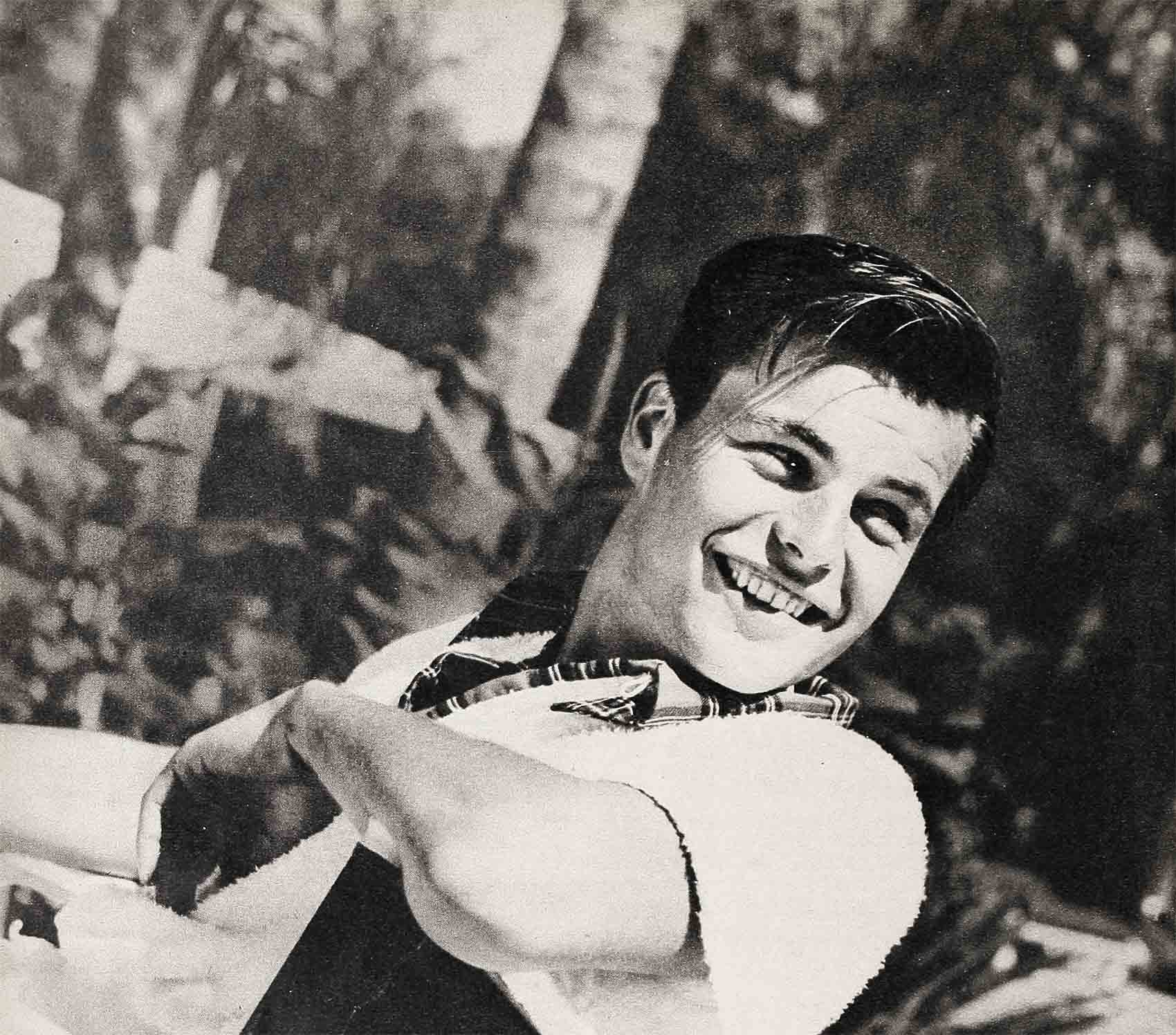
Continuing the discussion of Hollywood women Bob said, “When I played a small part in ‘With A Song In My Heart’ in which Susan Hayward starred as Jane Froman, I had the opportunity of watching Miss Hayward’s work. She is a perfectionist, drives herself, without ever losing her femininity. I think this is a great gift—when a girl can be such a perfectionist and yet so beautiful and charming at the same time.”
“In other words, Bob, you think it’s a great art not to let your ambition show?”
“Yes, I do! There’s something brittle about ambition. There’s got to be, especially in this business where there is such keen competition and the stakes, when you ‘make it,’ are high. But when an actress can be completely feminine at the same time that she is ambitious—well, I think that is an art, don’t you?”
“How did you like Barbara Stanwyck? Did you find her the perfectionist you did Susan Hayward?”
“I certainly did,” he answered. “I had always been a very great fan of hers, thought she was a terrific actress. When I met her while we were making ‘Titanic,’ I found she was not only a fine actress, but what a swell person besides! Everyone on the picture was crazy about her! She’s great fun, yet in spite of her important position on the screen, she’s unpretentious, gracious and a wonderful friend!”
“What about Audrey Dalton? Didn’t you play opposite her in ‘Titanic’?”
“Well, Audrey is quite different in personality from the others we’ve discussed. She has that English reserve. But once you know her, you find she has a very subtle, yet zingy sense of humor that sort of jolts you.”
We then got on the subject of clothes, since they say women dress to intrigue men, and to make other women envious.
“Do you have certain preferences? I mean are you always conscious of what a lady wears?”
Bob thought a moment and then he answered the profound question. “Well, no—but I do think girls look very nice in sports clothes—sweaters and skirts and things. I don’t know why something is attractive, I just know it fits well, looks well, the color’s okay, the girl looks real sharp in it—you know, doesn’t hide too much . . .” he said with a funny smile.
“Lucky me!” he said, glancing over at co-star Janet, “to have two such beautiful gals in one picture—Janet Leigh and Debra Paget. By the way, this is the second picture with Debra Paget. Now, she’s a girl who takes knowing. She’s quiet, reserved and very cute. She’s very straightforward, too.”
“Then you’re all for the straightforward, outdoor American girl! You’re definitely not the Zsa Zsa Gabor type . . . all glamour, allure and plunging necklines!”
“I wouldn’t narrow my horizons that much,” he said gaily. “I like glamour. I think Zsa Zsa Gabor is terrific! And on her, plunging necklines are very becoming. I don’t know her, but I’ve seen her on the screen. And by the way, what gent wouldn’t want to meet a Gabor?” he asked mischievously.
He smiled. “I’ve got to get back to the set,” he said, as he saw the assistant director coming toward the table to inform him about the next scene. “I’ve enjoyed this luncheon . . . but will you excuse me? I’ve got to rush so I can make a phone call before I get back to the set.” And then he looked at me with a half serious, half mischievous look on his face. “ . . . a phone call to my best girl!”
“B . . b . . but, Bob . . . this whole conversation has been about girls—the ones you admire and you didn’t say. . .”
But he was gone, laughing gaily.
THE END
—BY RUTH CUMMINGS ROWLAND
It is a quote. SCREENLAND MAGAZINE APRIL 1954




